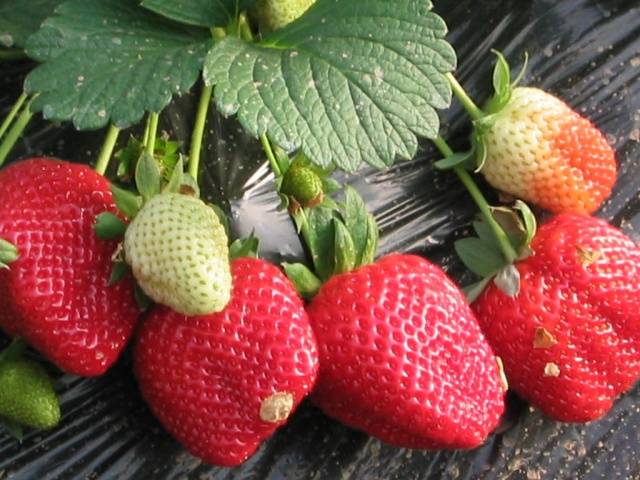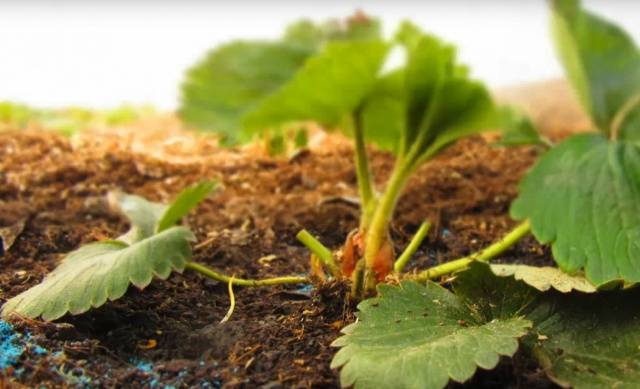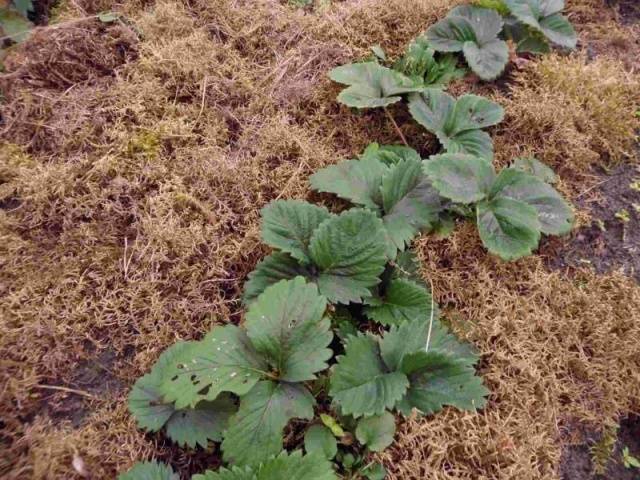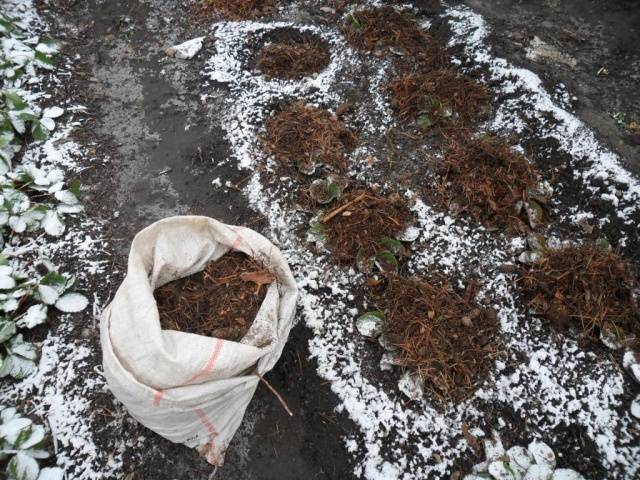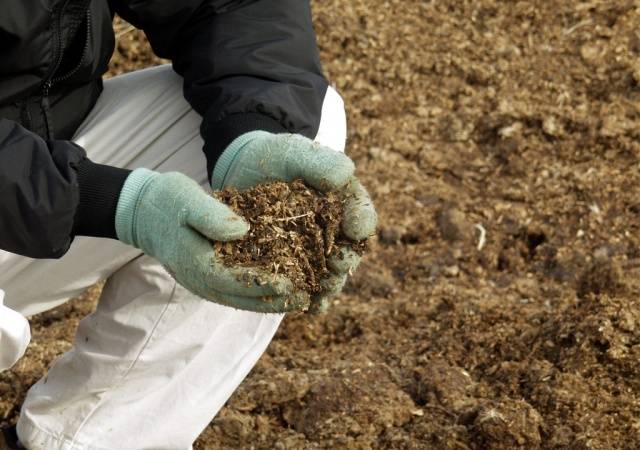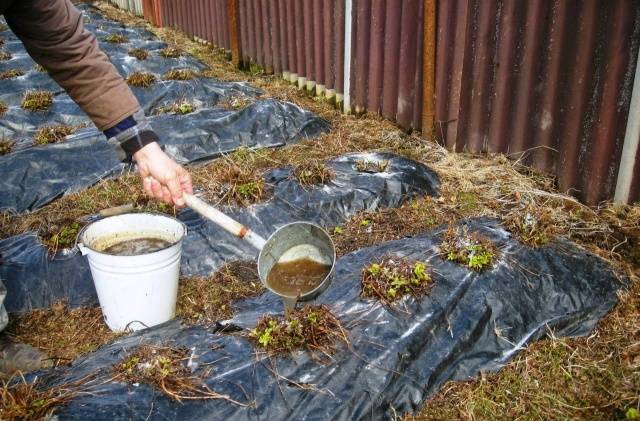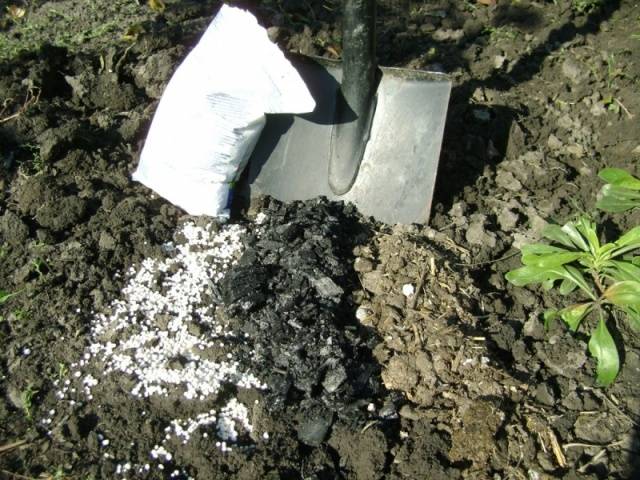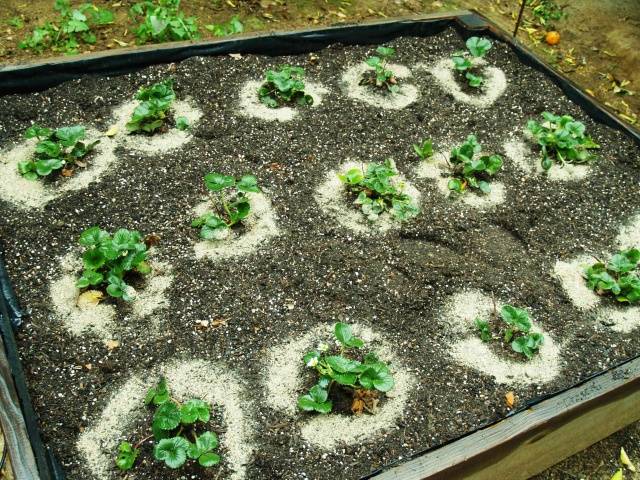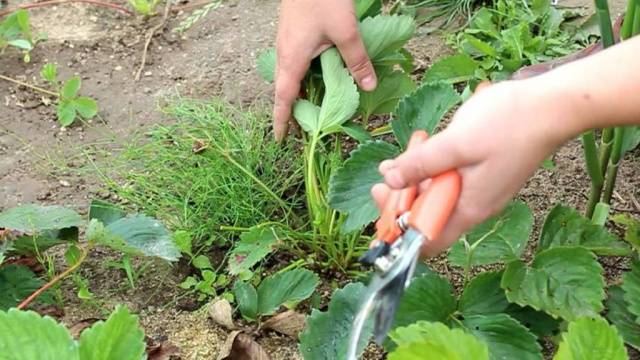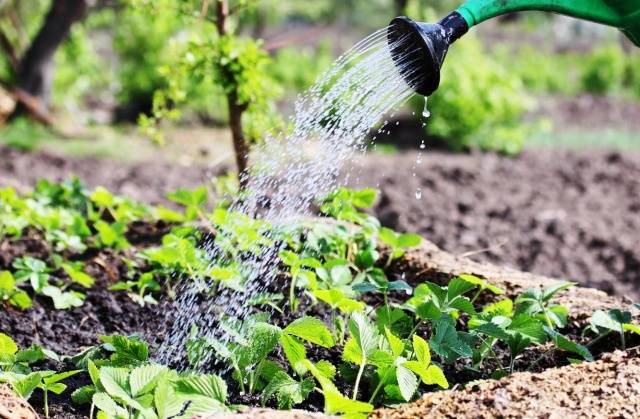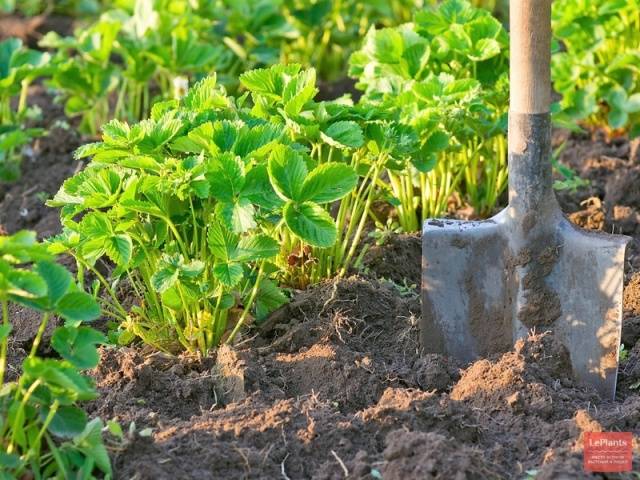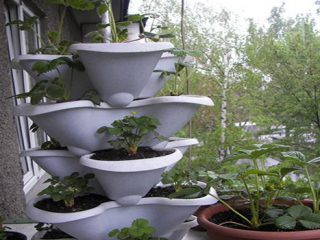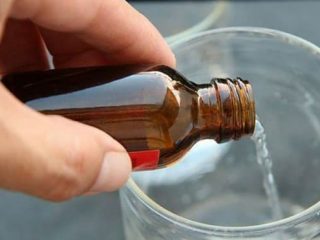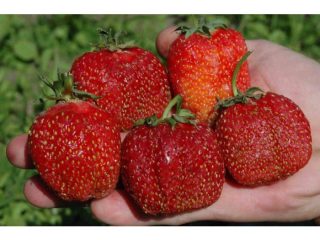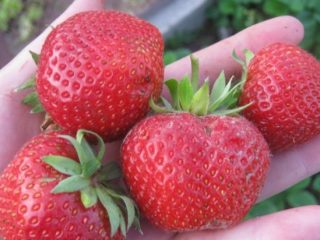Content
Strawberries are the favorite summer berry of all children and many adults. It is not difficult to grow strawberries, the main thing is to regularly water the bushes, monitor their "health", and, of course, apply fertilizers. You need to fertilize strawberries several times per season, and autumn is considered the most important fertilizing. You can not expect a good harvest next year if you do not prepare the bushes for wintering.
What is it for feeding strawberries in the fall, and what fertilizers you need to use so that the berry yields better in the new season - this will be an article about this.
Why autumn fertilization is so important for strawberries
Strawberries contain a lot of nutrients and vitamins, they help to strengthen the immune system and maintain the health of internal organs. Modern varieties of garden strawberries are distinguished by high yields, and remontant varieties are completely capable of bearing fruit all summer.
For such a yield, the soil under the berry must be saturated with all the necessary microelements - otherwise, where will all the "usefulness" come from in the fruits? During the summer season, the gardener needs to fertilize his beds at least three times. One of these dressings is in the fall.
After a bountiful summer harvest, strawberries are exhausted and need good nutrition to recover and prepare for the cold winter. It is during this period that the buds are laid for the next season, so the plant must be healthy and strong.
Most often, gardeners fertilize garden strawberries in September, but much here depends on the variety of sweet berries. In any case, it is necessary to start feeding no earlier than the last berries will be removed from the bushes.
What fertilizers to use for strawberries in the fall
All gardeners know that fertilizers are divided into mineral, organic and mixed. At each stage of development, plants need different chemical components: for the green mass, nitrogen is needed, and during the flowering period it is better to use superphosphate and potassium.
If you do not feed the strawberries at all and do not apply fertilizers to the soil, good yields will end very quickly - the natural composition of the soil will be enough, at best, for a couple of years. Regular feeding can increase the yield of berries by 20-30%, and remontant varieties without fertilizers will not bear fruit at all.
If the strawberry has already yielded a crop in the current season, it needs one composition of fertilizers, and when planting new plants in the fall, other top dressing should be chosen.
Organic fertilizer for strawberries
Most gardeners prefer to use organic fertilizers in the fall, since strawberries are very fond of such compositions. After the introduction of organic matter, the soil becomes loose, allows more air to pass through, and retains moisture well. And the garden strawberries themselves feel great: organic substances are quickly assimilated by plants, restoring the strength of strawberries after the fruiting stage.
You can feed strawberries with any of the existing organic compounds, only you need to use them correctly:
- Cow dung fresh, it is forbidden to use it to feed the bushes, because when decomposing, it heats up a lot, which can harm the root system and even completely destroy the plants.Therefore, it is customary to prepare slurry by diluting a liter of manure in a bucket of water and insisting this composition in a warm place for several days. As a result, you get a liquid of the consistency of store sour cream, and it is poured over the strawberries, trying not to pour fertilizer on the roots and leaves.
- Fresh can not be used and bird droppings, since it is a very concentrated fertilizer that can completely burn all plantings. After fruiting and trimming the leaves, strawberries can be fed with an extractor hood or a solution of chicken droppings, only fertilizer is poured into the aisles, and not under a bush.
- Leaf humus is one of the most successful fertilizers for strawberries, absolutely all plants love it. The humus collected in the deciduous forest is especially good. This nutrient mixture is poured in a thick layer directly onto the strawberry beds, then humus will also play the role of mulch and save the strawberry leaves from the cold in winter.
- Compost you can also fertilize strawberries from food waste. It is important not to allow prohibited products and plant residues from the garden (both weeds and cultivated) to get into the compost. Well-rotted compost is quite loose, it can perform the same task as humus. The bushes are simply covered with compost after pruning, and a handful of such a composition is added to each hole during planting of young bushes.
- Wood ash completely saturates the strawberry bushes with phosphorus, therefore it is successfully used instead of superphosphate and similar mineral fertilizers. In the fall, after trimming the leaves, the wood ash is evenly scattered over the area with strawberry bushes. Fertilizer consumption should not exceed 150 grams per square meter of the garden.
- Green fertilizers They have also proven themselves well - they are increasingly being fertilized by those who do not have access to fresh organic matter (manure or droppings). For strawberries, you can use chopped lupine leaves, nettle infusion or planting siderates. Any grass cut can be a fertilizer for garden strawberries, it is simply laid out between the beds and lightly sprinkled with earth.
Mineral dressings for garden strawberries
Not all gardeners and summer residents have access to fresh organic matter. The solution for such gardeners is mineral components, which can be purchased at any specialized store.
Mineral fertilizers are sold in the form of granules, powders or drops, it is convenient to work with them, it is easy to calculate a safe dosage. But you need to be extremely careful, because an excess of mineral supplements is more dangerous than a lack of them.
Good options for strawberries when planting in the fall and for bushes that have already given their harvest:
- watering the row spacing with a solution of potassium salt, prepared in a proportion of 20 grams of salt per 10 liters of water.
- A composition of 10 grams of superphosphate diluted in a bucket of water will give the same effect. Just water the strawberries carefully, trying not to get on the leaves and rosettes.
- A mixed composition of 2 tablespoons of nitrophoska, 20 grams of potassium salt and a bucket of water is used to water already cut bushes. A liter of this fertilizer is poured under each bush. After a couple of days, the ground under the strawberries should be mulched with sawdust, peat, pine needles or humus.
- In early September, it is recommended to use ready-made fertilizer "Kemira Autumn". It is diluted in water using 50 grams of the preparation per square meter of soil.
Preparing for winter
As already mentioned, the choice of fertilizer depends on whether old bushes are being fed or feeding is necessary after planting new plants. So, it is better to feed the fertilized plants twice: at the beginning of September and at the end of October.
You can use potassium humate or superphosphate for this. If the strawberries just sit down, then it is advisable to pour a handful of humus, compost or wood ash into each hole.
If you cover the beds with mulch immediately after fertilizing, you can skip top dressing until next fall - the protected roots will have enough fertilizer for a whole year.
Since the fall, they have been performing the following actions:
- continue to water the strawberry beds throughout September;
- they treat diseased bushes and fight pests - the affected strawberry will definitely not survive the winter;
- cut the leaves with a sharp pruner or scissors, trying not to cut off the stems and rosettes, also remove all the whiskers;
- loosen the soil in the aisles and huddle strawberry bushes;
- cover the beds with covering material or dry foliage, spruce branches, sawdust.
An integrated approach will help preserve most of the bushes and ensure a good berry harvest next year. Fertilizing strawberries in the fall is necessary, because the number of flowers and ovaries in the coming season, as well as the taste and size of berries, depends on this.
